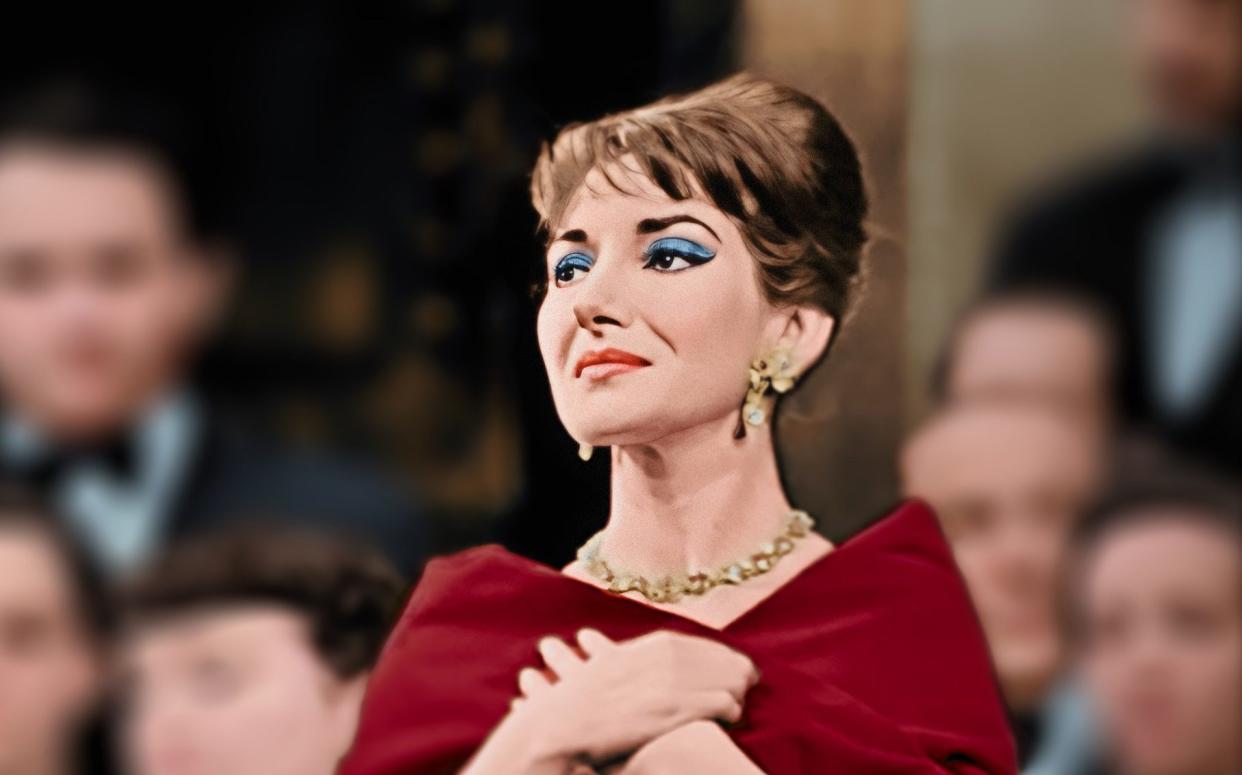Callas – Paris, 1958: the great diva thrills again in this lovingly restored tribute

The creation of celebrity culture is nothing new, and in the world of classical music it goes right back to the early stars of the recording era such as the tenor Enrico Caruso. But for sheer allure combined with personal charisma and technical brilliance, no-one has surpassed the soprano Maria Callas, who was born a hundred years ago next month: the anniversary is prompting a renewed focus on her astounding though short-lived talent, with all her recordings re-released.
This quixotic tribute by Tom Volf (already the producer of a fine Callas documentary, the 2017 Maria By Callas) is a re-run of one famous concert she gave in Paris in December 1958. It has been lovingly “colorised” by Samuel Francois-Steininger with both sound and visuals restored from the original, to create a musical portrait of the singer at – or perhaps just reaching past – the height of her powers.
For Callas, the year 1958 was a tipping point which started with her infamous mid-opera cancellation of Norma in Rome. There was a great deal riding on this Paris evening, which was a fashionable triumph for an audience including Chaplin, Bardot and the Duke and Duchess of Windsor; it saw the first attentions of the Greek magnate Aristotle Onassis which blossomed the following year but arguably marked the turning-point in her vocal fortunes.
There is a first half of her favourite arias, and a second half which is a rudimentary staging of Act 2 of Tosca. In the arias her presence gleams in a deep red gown (but was her eye shadow really that bright blue?) while the stage floor, and the static chorus, are all black-and-white. She stuns us with her trademark Casta Diva from Bellini’s Norma, and a tremendous scene from Verdi’s Il Trovatore, before attempting a coquettish turn in Rossini’s Una Voce Poco Fa from The Barber of Seville.
The technique is still secure, though at this close range there is a strain in the piercing top range which tells. It is in the staged act of Tosca that Callas’s dramatic genius flowers: her confrontation with Scarpia (the superbly brutal Tito Gobbi) culminates in his murder. However, Callas lovers in this country will already be familiar with the classic film of this single act in the Zeffirelli staging, recorded at Covent Garden in 1964. The Paris version, now in colour, is less well filmed – her central aria Vissi d’Arte begins far off upstage, capturing none of the searing passion of the Royal Opera’s close-up.
It is an irony that one of opera’s supreme dramatic actresses left no visual account of a complete opera, yet there are two films of this single act. The colour of Callas – Paris, 1958 will surely draw new audiences towards her compelling art, but some of us will still be content with the bleak intensity of black-and-white.
In cinemas Nov 11. Cert PG, 87 mins


